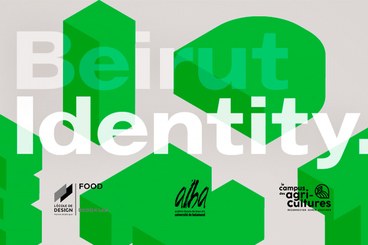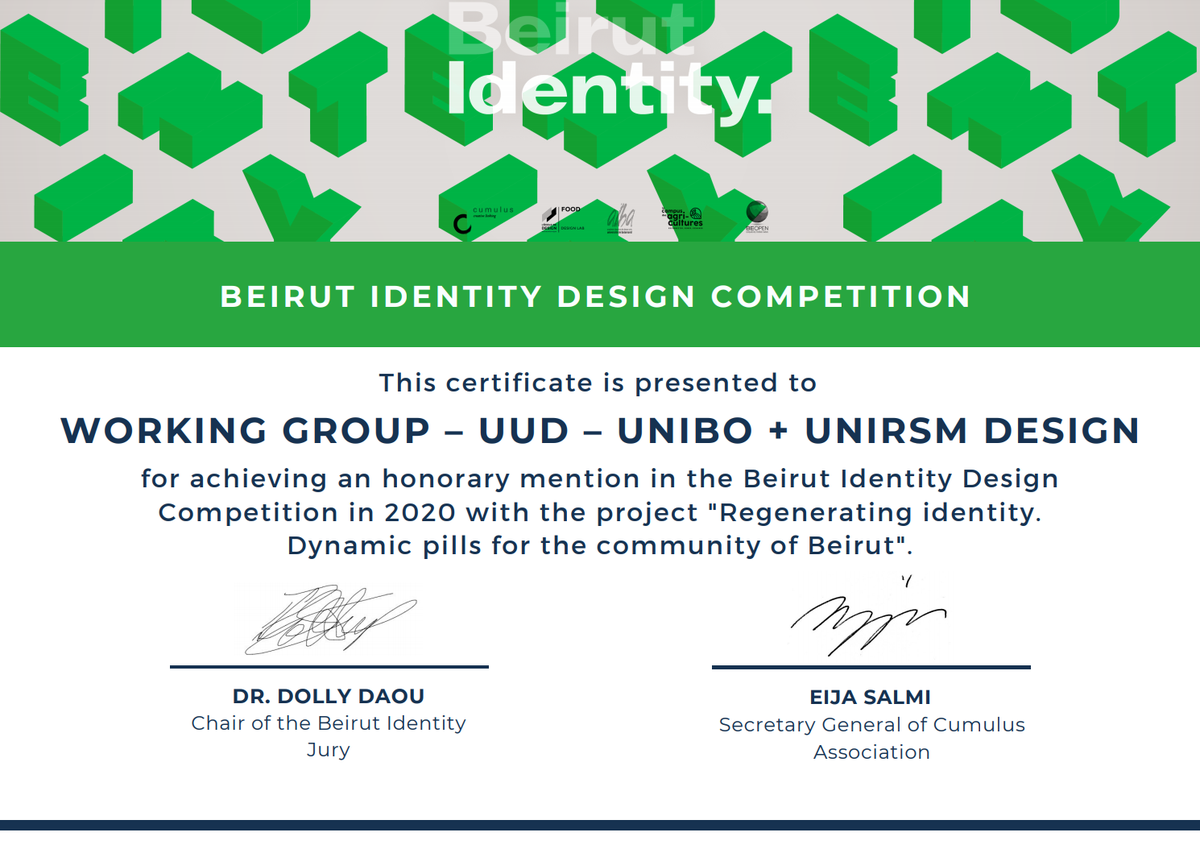Beirut ID 2020
Menzione Speciale

-
Data:
22 APRILE-27 APRILE 2021 -
Tipo: teaching
About the Competition
The city’s identity is its memory, made up from layers of history that design the city’s spirit; its culture, which includes its architecture, urban landscape, music, food, language, domestic and commercial spaces and of course its PEOPLE. Violent events erase this identity. Throughout history, in Lebanon, there has been a systematic erasing of the Lebanese identity. In every era different identities inhabited Lebanon and left their traces on the city.
Beirut Explosion in the city port on 4 August 2020 destroyed half of the capital of Lebanon. It violated most of Beirut recently reconstructed historical areas known as: Gemayeseh, Ashrafiyeh, Mar Mikael… These neighborhoods contained people’s lives, heritage houses, co-habiting with undiscovered archeological layers beneath the modern Beirut. With Lebanon facing an economic crisis, a health crisis COVID19, the explosion added an unprecedented disaster that left more than: Around 200 people dead, 5000 wounded and 300,000 people displaced. The accident caused an immense damage to the city’s spirit: Its people, architecture, urban landscape, its business and food eco-system.
The explosion not only claimed people’s lives but impacted heavily their everyday practices; misplacing people away from their familiar spaces, their homes. Streets that were full of shops, people, and activities transformed into ghost town and fell into a sad silence apart from the energy of the young Lebanese who took to the streets to clean their city. Beirut’s identity which spans over 6 million years of habitable history is in an urgent need of the world creative community to offer solutions that support the Lebanese community with impactful solution.
The aim of the Identity competition is to bring back joy, happy activities and the resilience to all Lebanese people by reinventing hope and revitalizing Beirut and its spirit. The Phoenix is rising from the ashes to relive, reconstruct and rebuild communities.
This competition is open to the world design community – students, professionals and to anyone, who is willing to offer impactful environmental and identity solutions to disastrous communities and to anyone is willing to help Lebanon during its time of crisis. The competition is for people to #designforpeace for rebuilding the Beirut community spirit.
The submissions could be media campaigns, posters, prospective solutions, workshop proposals or a project, a research project proposal, or e.g. conceptual urban design proposals. As long as, the idea has a positive impact on the Lebanese community and there is a real understanding and respect to the regional Lebanese and Beirut identity and the Lebanese and Beirut’s spirit.
The intellectual property rights IPR belong to the participants. The competition participants are welcomed to collaborate with a NGO to realize the submission, this will though have no consequences on the jury’s decision in the competition. The organizers may match a submission with a NGO.
An international jury from academia and practice as experts in design, culture, sustainability and the circular economy will serve the competition.
The winners get as recognition a certificate, the number of winners are a decision of the jury. The jury has also the right to award honorary mentions. Winners and any honorary mentions are subject to media releases by the organizers. An online showcasing of the winners will be set up in 2021.

Name:
A. Sicklinger & R. Varini
Institution:
University of Bologna and University of S. Marino
Course and Discipline:
Product Design Workshop
About:The UUD group is made up of professors, researchers and designers from the two universities of Bologna and S. Marino who have been involved in education, research and local territorial regeneration for more than twenty years in international contexts. Is active in theoretical and applied research projects, university and postgraduate courses, as well as international collaborative program in the Mediterranean area, including the Lebanese area and North Africa, working with UNESCO and Fair Trade